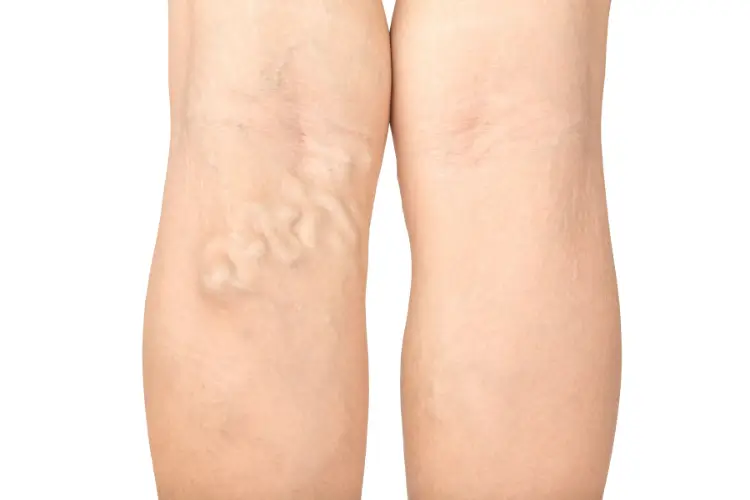Varicose veins are more than just a cosmetic concern. If left untreated, these swollen, twisted veins can lead to serious health complications. In this article, we’ll explore the risks of ignoring varicose veins and discuss effective treatment options to help you maintain healthy circulation.
Understanding Varicose Veins
Varicose veins occur when the valves in your veins become weak or damaged, causing blood to pool and the veins to enlarge. While they commonly appear in the legs, they can also develop in other parts of the body.
Common Symptoms
- Visible, swollen veins
- Aching or heavy legs
- Swelling in the ankles and feet
- Itching or burning sensation around the affected area
- Skin discoloration
The Hidden Dangers of Untreated Varicose Veins
Many people dismiss varicose veins as a purely aesthetic issue, but ignoring them can lead to serious health problems.
1. Chronic Venous Insufficiency
Untreated varicose veins can progress to chronic venous insufficiency, where blood doesn’t flow properly back to the heart. This can cause:
- Persistent leg pain and swelling
- Skin changes, including hardening and discoloration
- Increased risk of blood clots
2. Deep Vein Thrombosis (DVT)
Varicose veins increase the risk of developing deep vein thrombosis, a potentially life-threatening condition where blood clots form in the deep veins of the legs.
3. Venous Ulcers
In severe cases, untreated varicose veins can develop painful, slow-healing ulcers on the skin, typically near the ankles.
4. Bleeding
Varicose veins near the skin’s surface can rupture and bleed, especially if bumped or scratched.
Risk Factors for Varicose Veins
Understanding the risk factors can help you take preventive measures:
- Age (risk increases with age)
- Gender (women are more prone)
- Family history
- Obesity
- Pregnancy
- Prolonged standing or sitting
- Lack of physical activity
Diagnosing Varicose Veins
If you suspect you have varicose veins, consult a healthcare professional. Diagnosis typically involves:
- Physical examination
- Medical history review
- Ultrasound imaging to assess blood flow
Treatment Options
Fortunately, there are various treatment options available for varicose veins, ranging from conservative measures to minimally invasive procedures.
Conservative Treatments
- Compression stockings
- Elevation of legs
- Regular exercise
- Weight management
Minimally Invasive Procedures
- Sclerotherapy
- Laser therapy
- Radiofrequency ablation
- Endovenous laser treatment (EVLT)
For those seeking specialized care, Utah vein specialists can provide expert guidance and treatment tailored to individual needs.
Preventing Varicose Veins
While some risk factors are beyond our control, there are steps you can take to reduce your risk of developing varicose veins:
- Maintain a healthy weight
- Exercise regularly, focusing on activities that engage the legs
- Avoid prolonged standing or sitting
- Elevate your legs when resting
- Wear loose-fitting clothing
- Avoid high heels and opt for lower-heeled shoes
The Impact of Diet on Vein Health
Your diet plays a crucial role in maintaining healthy veins. Consider incorporating these vein-friendly foods into your meals:
- Berries (rich in antioxidants)
- Citrus fruits (high in vitamin C)
- Leafy greens (good source of vitamin K)
- Whole grains (fiber helps maintain healthy weight)
- Fish (omega-3 fatty acids reduce inflammation)
| Food Group | Benefits for Vein Health |
| Berries | Antioxidants protect blood vessels |
| Citrus | Vitamin C strengthens vein walls |
| Leafy Greens | Vitamin K improves circulation |
| Whole Grains | Fiber aids in weight management |
| Fish | Omega-3s reduce inflammation |
Exercise and Varicose Veins
Regular exercise is crucial for maintaining healthy veins. Here are some vein-friendly exercises:
- Walking
- Swimming
- Cycling
- Yoga
- Leg lifts
These low-impact exercises help improve circulation without putting excessive strain on your veins.
When to Seek Medical Attention
While many cases of varicose veins can be managed with conservative treatments, it’s important to know when to seek medical attention. Consult a healthcare professional if you experience:
- Severe pain or swelling in the legs
- Skin changes, such as discoloration or hardening
- Open sores or ulcers near the affected veins
- Bleeding from varicose veins
- Sudden increase in swelling or pain
The Psychological Impact of Varicose Veins
It’s important to acknowledge that varicose veins can have a significant psychological impact. Many people feel self-conscious about the appearance of their legs, which can lead to:
- Reduced self-esteem
- Avoidance of social situations
- Reluctance to wear certain clothing
- Depression or anxiety
Addressing varicose veins isn’t just about physical health; it’s also about improving overall quality of life and mental well-being.
Advances in Varicose Vein Treatment
Medical advancements have led to more effective and less invasive treatment options for varicose veins. Some of the latest developments include:
- Cyanoacrylate adhesive closure: A medical adhesive is used to seal off problematic veins.
- Mechanochemical ablation: Combines mechanical damage to the vein lining with a sclerosing agent.
- VenaSeal: Uses a medical adhesive to close the vein, eliminating the need for multiple injections.
These newer treatments often result in faster recovery and less discomfort than traditional surgical options.
Wrapping Up
Varicose veins are more than just a cosmetic issue. They can lead to serious health complications if left untreated. You can protect yourself from potential complications by understanding the risks, recognizing the symptoms, and taking proactive steps to maintain vein health. Remember, early intervention is key to preventing more serious issues. If you’re concerned about varicose veins, don’t hesitate to consult with a healthcare professional to discuss your options and develop a personalized treatment plan.




